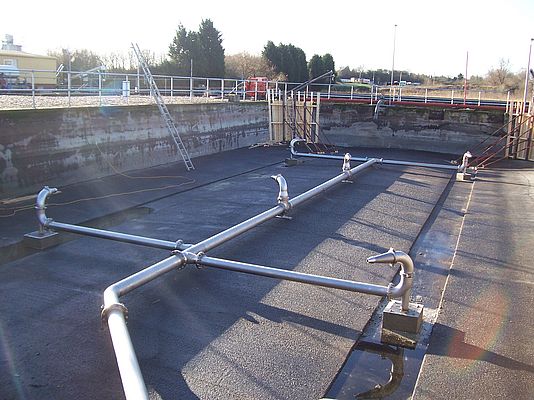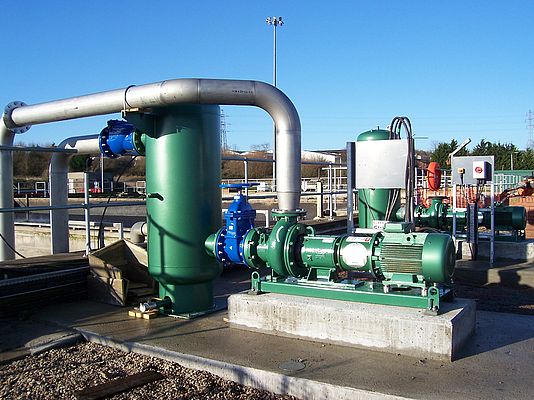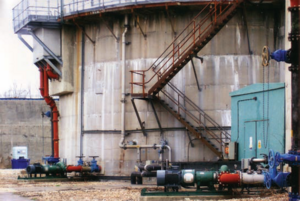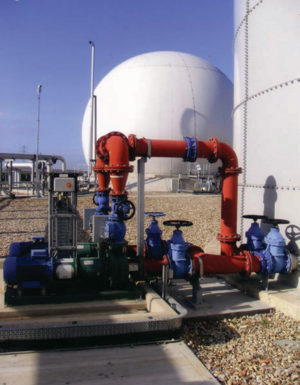Anglian Water ,UK, achieves over €45,000 per year of savings by installing two mixing systems for handling secondary sludge at their Colchester sewage treatment works.
In August 2009 System Mix were commissioned to supply STM (Small Tank Mixing) pumped mixing systems for both secondary sludge tanks at Anglian Water’s Colchester sewage treatment works (STW). These tanks measure 30 x 15.2 metres have a depth of 2.5 metres and a flat floor with a 1.5% fall. The STM systems replaced four submersible mixers which were constantly failing. Due to this existing poor mixing process continuing problems were evident. For example, the formation of large islands of deposition within the tanks which reduced storage capacity created ever-increasing cleanout costs, but most importantly resulted in inconsistent sludge being fed to the centrifuges. In addition to the poor mixing, maintenance and safety issues had to be addressed each time the submersible mixers needed to be lifted.
Each STM system was of bespoke design and consisted of a series of six nozzles in each tank with a Vaughan HE6U chopper pump and motor, auto-self priming tank, associated pipework and valves. To date, Anglian Water Engineers at Colchester STW remain delighted with the performance of the new mixer systems and report that there has been a big reduction in polymer superfloc C498 usage compared to what was previously required with the submersible mixers.
Sludge feeding the centrifuges used to be very inconsistent (thick & thin) but after a homogenous mix with the new systems the sludge now retains a more consistent character.
Taking a closer look at the cost-savings these are the figures calculated cover a time period up to August 2009. In January 2009 the site was using one 750kg bag of polymer per week, at a cost of €1,800 per bag. In August 2009 a minimum of 50% was being saved in polymer usage, one bag for every two weeks, with the potential for further savings if optimized for longer resulting in a saving of €45,800 per year minimum. Furthermore, another benefit was a reduction in anti-foam chemical usage to the centrifuges thanks to a fully homogenised and improved quality sludge feed to the centrifuges, providing further savings.
Before the new mixing systems were installed site operatives at Colchester STW would spend approximately one to two hours per day operating a series of valves to control the sludge to the centrifuges. This operation is no longer required, as the systems are fully automated requiring no attention, giving further cost savings and time for the site operatives to carry out other duties on site.
The chopper pumps operating on the mixing systems do require a simple inspection adjustment check every six months, which is a one man operation on site and should take approximately one hour per visit to complete. The mixing systems will have been in operation for two years in January 2011 and the only maintenance costs required to date have been to replace a bearing in one of the drive motors. Colchester STW do not envisage any other costs for at least another two years and this should give a pay-back period, covering the cost to supply and install the mixing systems, of around 2-3 years.




















